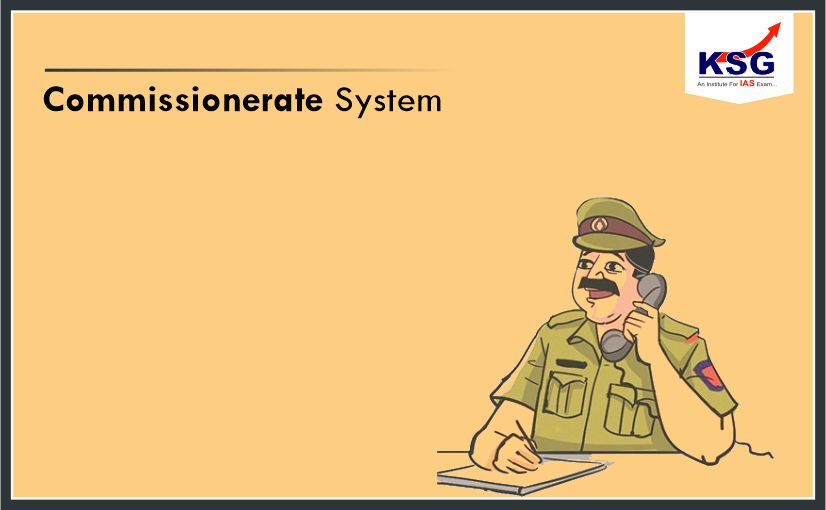Commissionerate System
The Government of Uttar Pradesh had decided to implement the 'Commissionerate system' of policing in two districts viz. Lucknow and Noida. Under this system, more responsibilities were under the jurisdiction of an IPS vis-à-vis an IAS in dual system.
Commissionerate System
News Excerpt
The Government of Uttar Pradesh had decided to implement the 'Commissionerate system' of policing in two districts viz. Lucknow and Noida. Under this system, more responsibilities were under the jurisdiction of an IPS vis-à-vis an IAS in dual system.
Pre-Connect
- Under the 7th Schedule of Indian Constitution, Police and Law & Order are under the jurisdiction of state governments.
- Presently, at the district level, a dual system of control exists in which superintendent of police (SP) and District Magistrate (DM) work in coordination to supervise police administration.
- Almost all states barring Bihar, Madhya Pradesh, UT of J&K, and some North-eastern states have a Commissionerate system. The British brought the system first in Kolkata and followed it in Mumbai and Chennai presidencies.
Police Act 1861
- Act was enacted as the aftermath of Revolt of 1857, where Britishers felt the need of a local force to prevent future revolts.
- The act introduced the concept of Policing in India and later even after the independence it was continued.
- It mandates Commissionerate system, in cities with more than 10 lakh population.
About Commissionerate System
- In this system, a Commissioner of Police is drawn from the Deputy Inspector General rank or above and is assisted by Special/Joint/Additional/Deputy Commissioners.
- This system gives an integrated command structure. It helps fix responsibility with the Commissioner and eliminates blame games between civil administration and police when something goes wrong.
- Commissionerate system provides an enabling structure to deliver police services in a complex region.
PEPPER IT WITH
Police Reforms, Directions of the Supreme Court in Prakash Singh vs Union of India.
- The major flaw of this system is that it undermines the authority of a District Magistrate, who plays a larger role in a district administration.

